Artificial intelligence has reached certain heights in the field of technology. Users not only develop dedicated AI tools but can also build a platform for sharing them. Thus, what better place to collaborate on models, datasets, and spaces than on the Hugging Face voice cloning tool?
This platform provides you with different spaces that people can browse and share. In this article, we'll focus our attention on the HuggingFace voice cloning tool.
In this article
Part 1: Hugging Face: Reviewing The AI Community
Are you looking to build a community on AI machine learning where you can collaborate, share, and create new ideas? For this, Hugging Face documentation provides 350k+ models, 75k+ applications, and 150k+ datasets. You can experiment with open-source ML that includes diffusers, Python Library, and more. It is the perfect space where people share their knowledge and resources to improve AI.
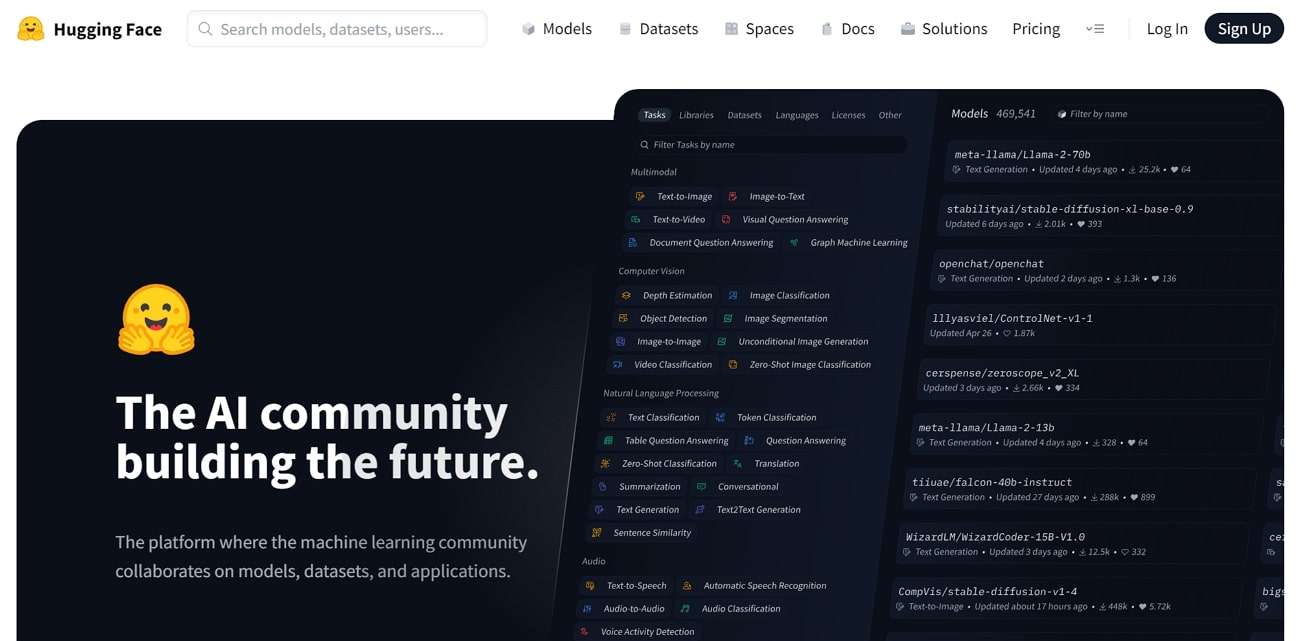
With its vast space libraries, you can also access the Hugging Face voice cloning tool. It not only provides you with one amazing ML app on voice cloning tool but offers several options. These options include voice cloning demos, real-time voice cloning, and many more. The voice cloning Hugging Face tools provide a space where you can transform your voice with AI.
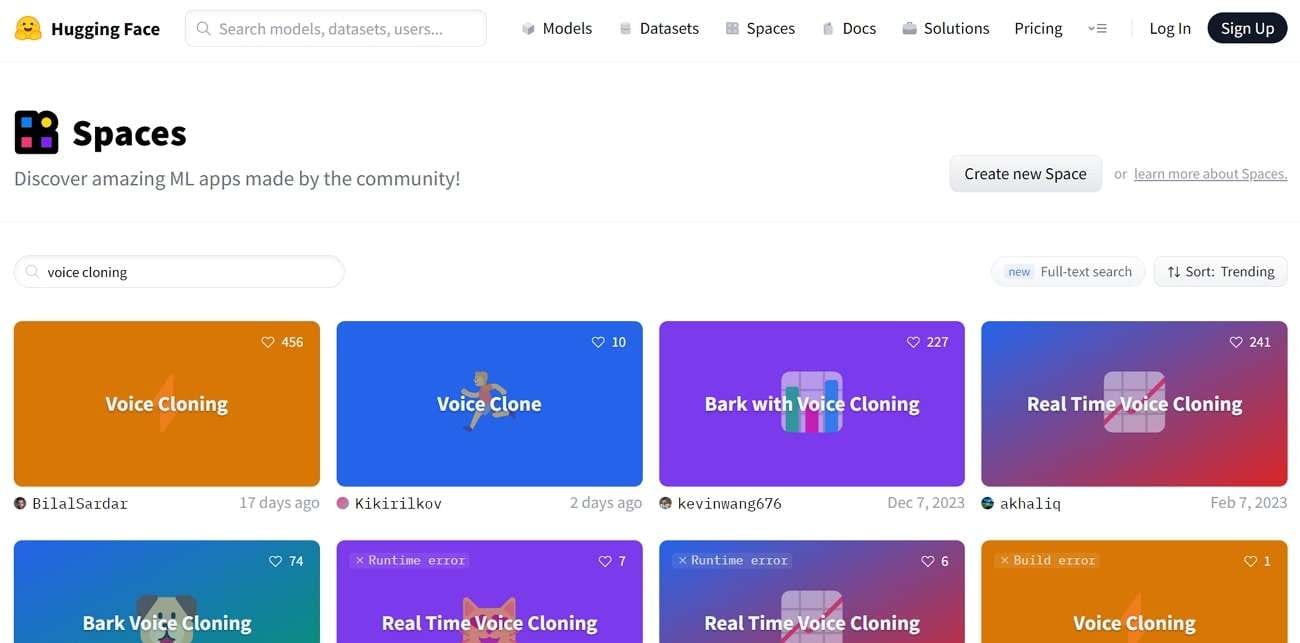
Key Features
There is much more to Hugging Face voice cloning tools than this single function. Are you interested in finding out what other features this platform provides? In the below section, we have given you some of the key functionalities of this tool:
1. Models
Hugging Face contains a vast collection of pre-trained models shared by the community. It is equipped with a Model Card that informs users of each model's limitations. Users can add an interface widget to their model that allows everyone to play their model on the browser. Also, you can explore various model documentation, like Transformers, Asteroid, and ESPnet.
2. Spaces
The “Spaces” feature of this tool lets you host ML demo apps on the Hub with ease. If you want to make your mark in the ML community, you can build an impressive ML portfolio. You can include your projects and showcase them to your collaborators. It supports two Pythons SDKs, Gradio and Streamlit, that let you build apps. Plus, you can also create static Spaces with HTML/CSS/JavaScript.
3. Datasets
If you, as a coder, want to explore a dataset library that allows you to interact with your datasets, use Hugging Face. The datasets library offers you a diverse collection of datasets for NLP tasks. There are over 5000 datasets available in 100+ languages for Computer Vision tasks. You can explore the data on the browser with Dataset Cards and Dataset Preview options.
4. Docs
Hugging Face's documentation is a useful resource for developers and researchers. You can explore various types of documentation, such as inference endpoints, PEFT, and hub Python library. There are various datasets, pythons, models, and ML tasks. It assists users in understanding how to implement various tools offered by Hugging Face.
Pricing Plans
Users and organizations can use this Hub as a collaboration platform where they can share their ideas. Thus, you can utilize this tool and its advanced features at a small price given below:
| Plans | Price |
| Pro Plan | $9 per month |
| Enterprise Hub | $20 per user per month |
AI Video in Minutes!

Part 2: Voice Cloning Feature Through Hugging Face: A Step-by-Step Guide
If you want to create a personalized voice assistant for effective communication, you can use voice cloning. In this way, you can generate various speech samples for different situations. Hugging Face voice cloning tool provides a straightforward process to get a natural-sounding voice. Let’s go through the easy-to-follow steps to create different versions of your voices:
Step 1 Look For Voice Cloning Tool in Hugging Face
Begin the process of Hugging Face voice cloning by visiting its official website. Within this window, head to the top and tap on “Spaces” to access the Spaces window. Here, in the “Search Spaces” box, type “OpenVoice,” and from the output results, opt for the “OpenVoice by myshell-ai.” This action will proceed you to a new window to make a clone of your voice.
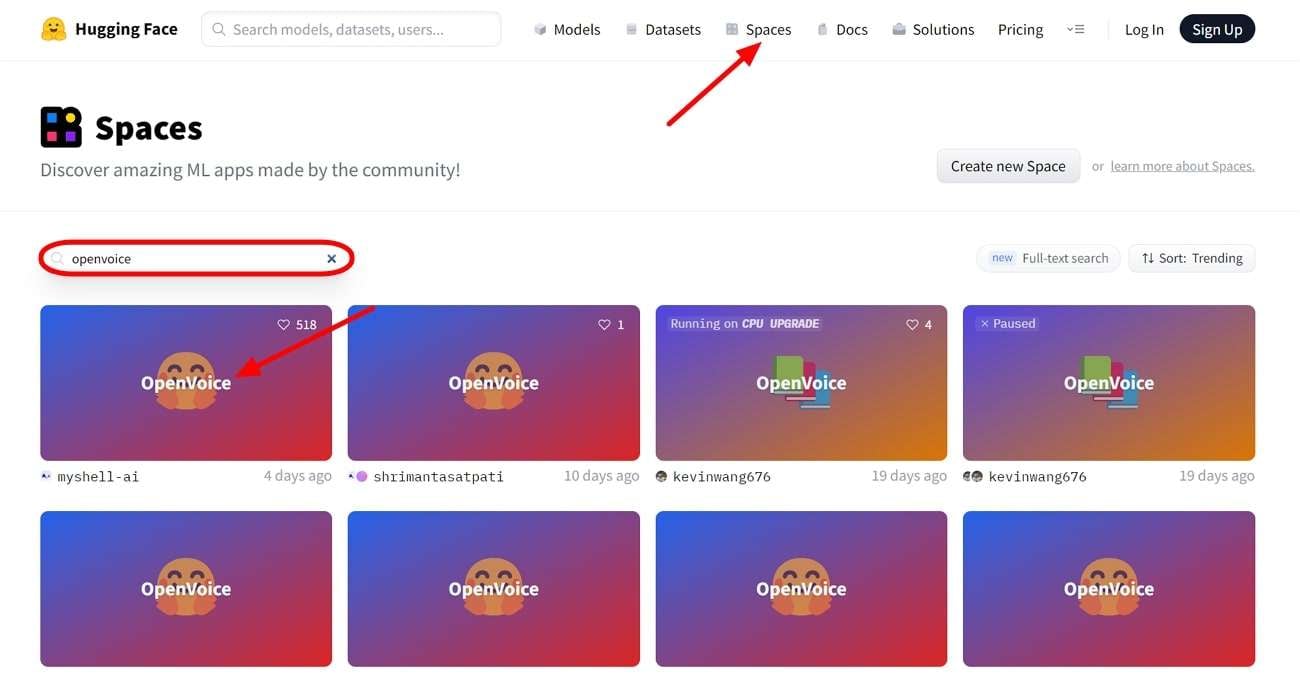
Step 2 Add The Script as Prompt
In the upcoming window, write the script you want to convert into a voice in the “Text Prompt” box. Here, you can type in any kind of script, from professional to personal, to use in different scenarios.
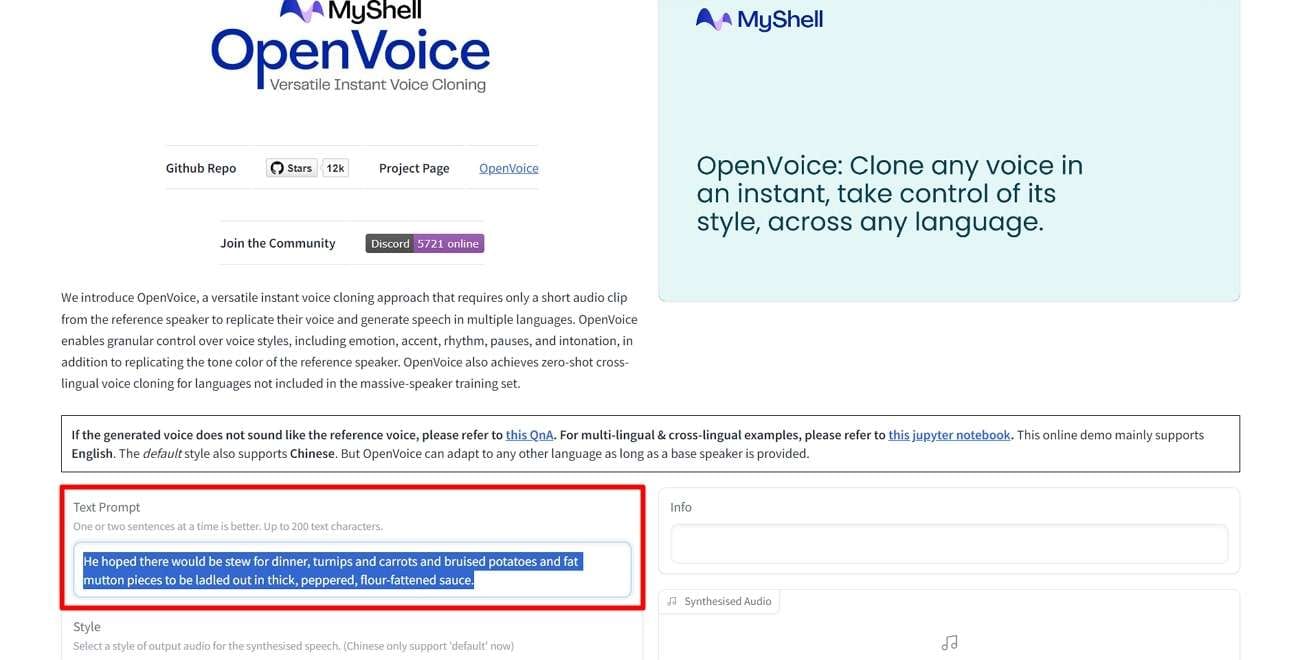
Step 3 Set Style and Include Reference
From the “Style” dropdown menu, choose your desired tone. Next, in the “Reference Audio” section, press “Click to Upload.” It opens a dialogue box to let you upload the required file on the tool.
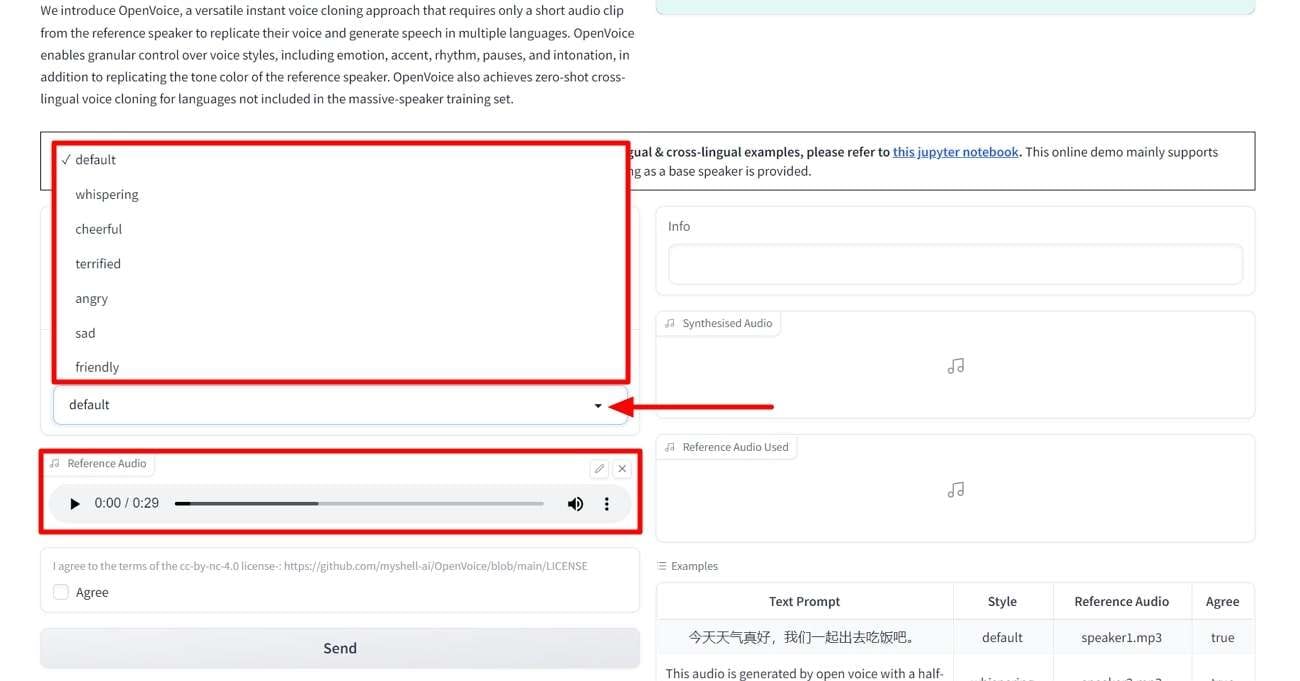
Step 4 Check Synthesized Results
After uploading the reference audio on the tool, approve the terms by checking “Agree.” Later, proceed with hitting the “Send” button to allow the tool to assess the audio and make clones of it. You can see the results in the "Synthesized Audio" section on the right side of the screen. Now, enjoy listening to different variants of your voice and use it for different content.
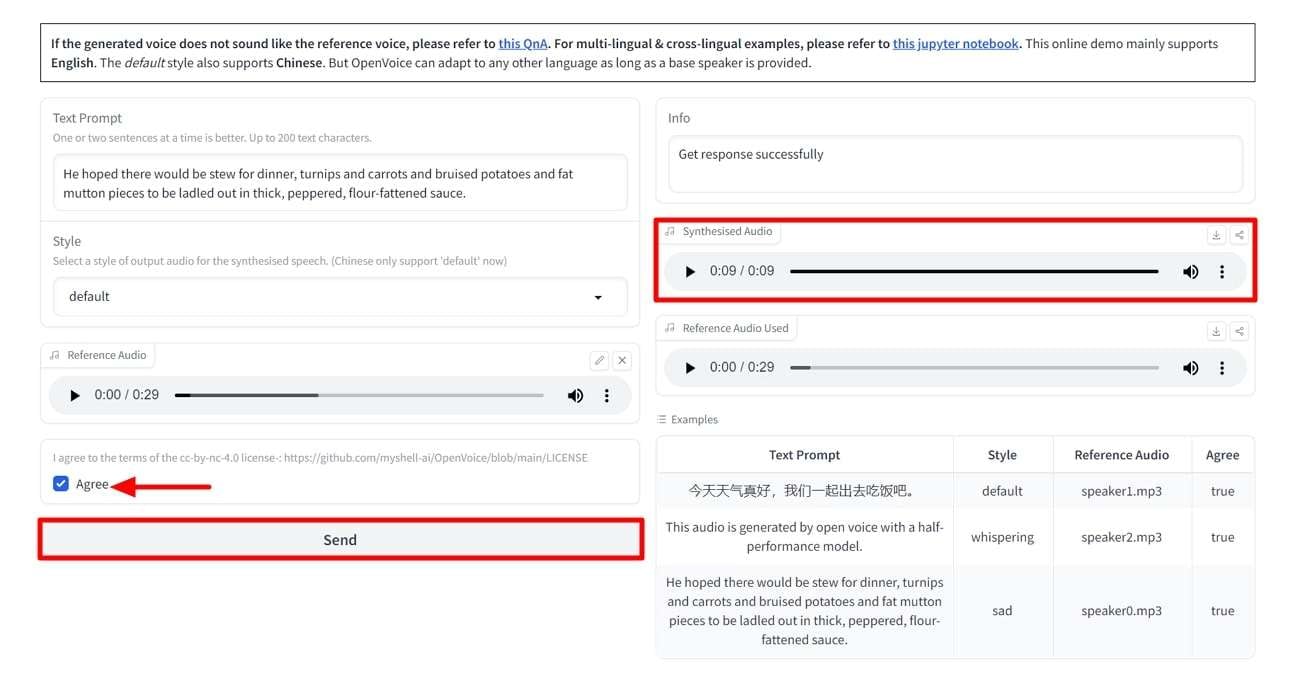
Conclusion
In conclusion, Hugging Face aids users with various ML applications, datasets, and more. Among these spaces, the HuggingFace voice cloning spaces can clone your voice within a few easy steps. Any individual seeking such services can go across this comprehensive platform to dissect the best voice cloning content.
*Note: The AI voice cloning technology mentioned in this page is for lawful use only. Unauthorized replication or commercial use of others' voices is prohibited. Violators will be held legally accountable.




